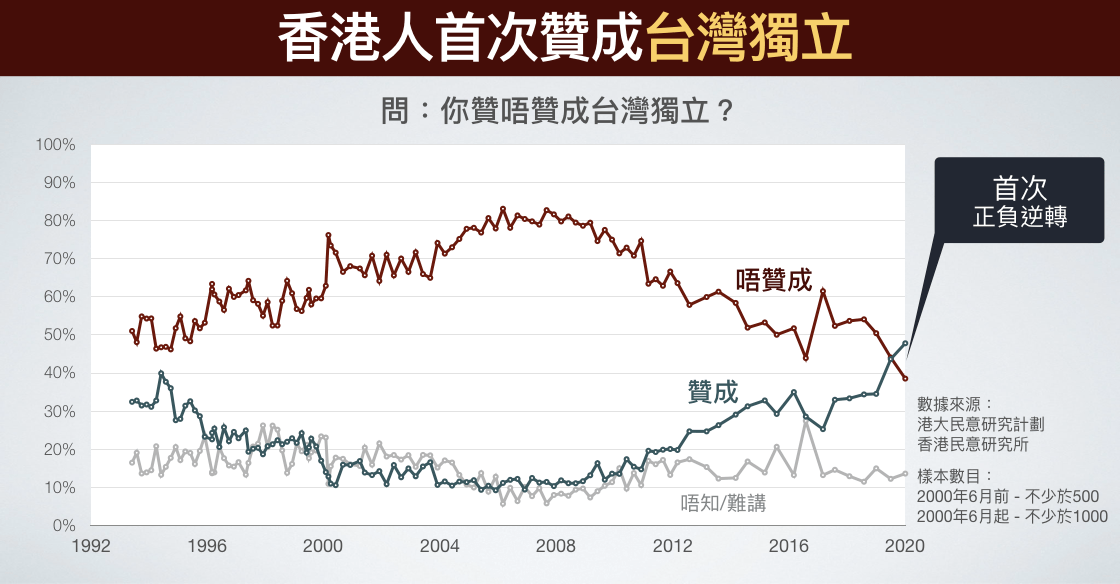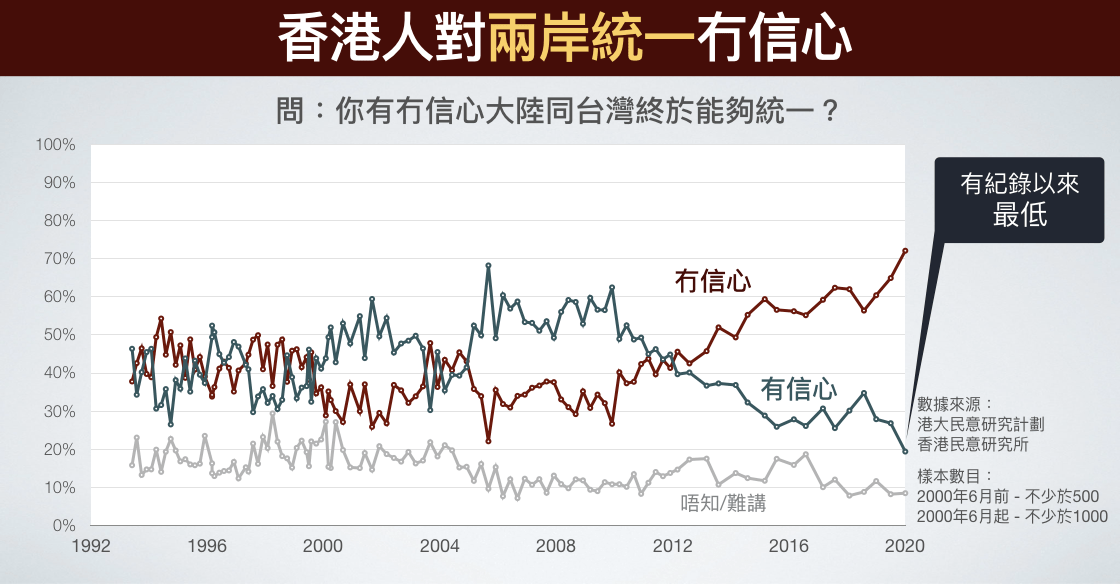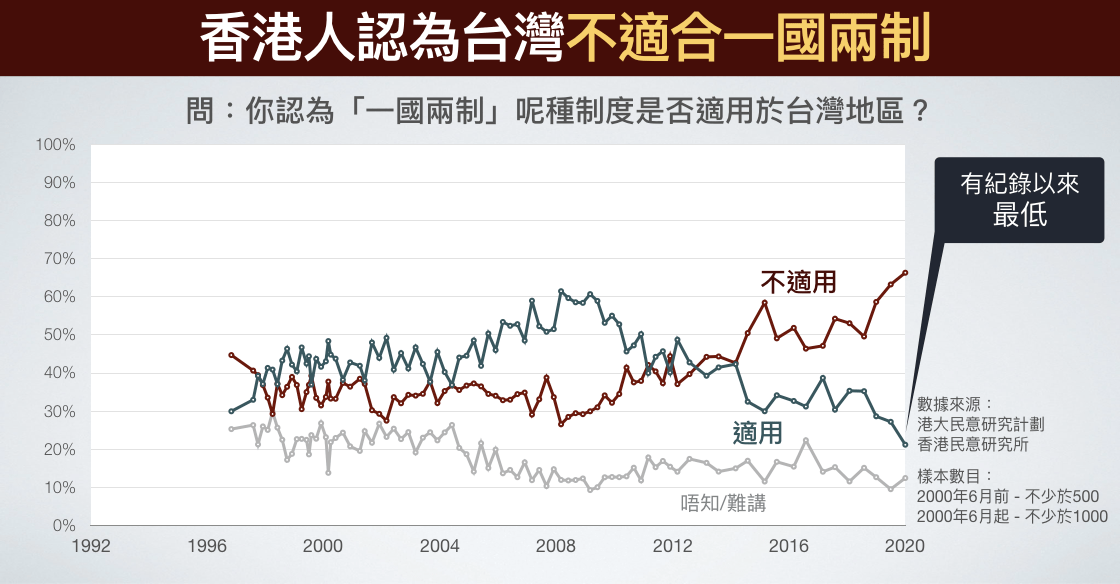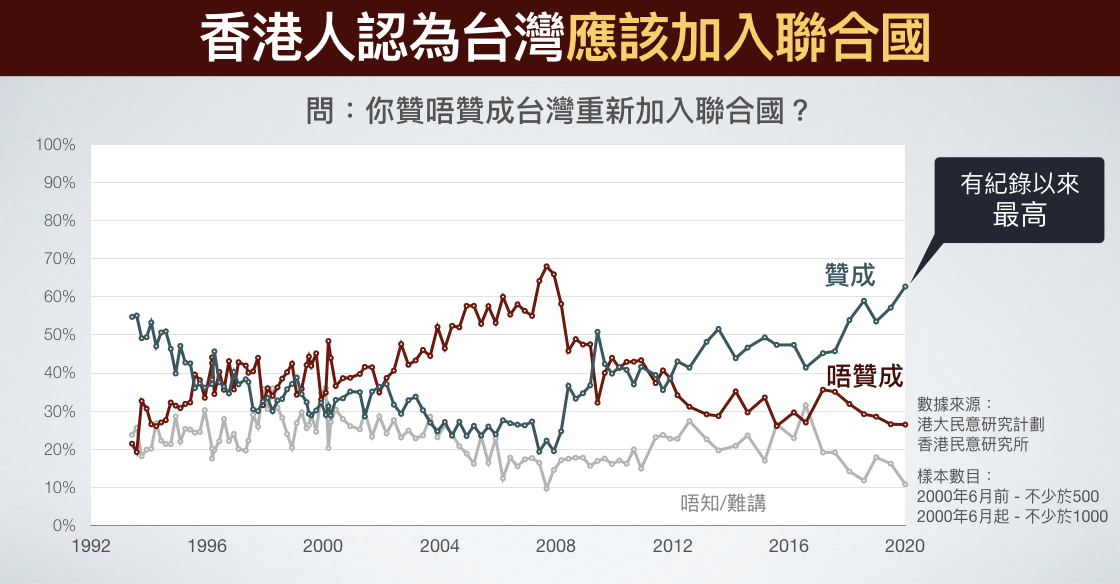副業是在香港中文大學教書,主業是玩貓。
Hong Kongers support Taiwan independence for the first time

It is really not wrong to say that Carrie Lam is a "genius". The Hong Kong Institute for Public Opinion released a new round of polls on Taiwan issues yesterday. After the controversy over the revision of the Fugitive Offenders Ordinance in the past six months, Hong Kong people's stance on Taiwan independence has reversed for the first time, with more support than opposition.
Taiwan independence was once a taboo issue in Hong Kong. I remember that in the late 1990s, the forum section of an intellectual newspaper published an article with the theme of Taiwan independence, and the newspaper had to make up for it in a hurry, saying that it was because the editor of the forum section was on holiday that day, and the substitute workers were not careful enough to post it by mistake. article. I remember this incident very much, and it can be regarded as my enlightenment to the term "gatekeeper" in media theory.
When Hong Kong people look at Taiwan, it is often a mirror in which Hong Kong people look at themselves. Although Hong Kong people have limited knowledge of Taiwan's history and politics, they at least know that Hong Kong and Taiwan are facing the same China. Hong Kong people's attitude towards China is often projected on Taiwan and cross-strait relations.
In the period around 2008, as many as 80% of Hong Kong people opposed Taiwan independence, and only 10% supported it, which can be said to be completely one-sided. Readers who have studied the identity of Hong Kong people should not be surprised by this, because it was also the highest point of Hong Kong people's Chinese identity at that time, and it is generally believed that it was related to the Sichuan earthquake and the Beijing Olympics. Since then, Hong Kong people's Chinese identity has gradually declined, and their resistance to Taiwan independence has gradually eased. In the past six months, the controversy caused by the revision of the "Fugitive Offenders Ordinance" has greatly increased Hong Kong people's dissatisfaction with China's governance, while the Taiwan government and people have expressed their support for Hong Kong's protests many times. Taiwan independence is no longer a taboo for Hong Kong people.
Compared with Taiwan's independence, other Taiwan-related issues have long since experienced positive and negative reversals.

For example, the confidence in the reunification of the two sides of the Taiwan Strait, as early as March 2012, was more confident than not confident. The latest figures, whether it is the proportion of confident or the net difference between those who are not confident, are the lowest on record.

As for whether one country, two systems applies to Taiwan, it entered negative net worth as early as March 2011. Likewise, the latest figures are also the lowest on record, both in terms of the ratio of not applicable, or the net difference between applicable and not applicable.

Finally, there is the question of Taiwan joining the United Nations. The overall trend is the same as other topics: Hong Kong people used to be quite "patriotic" around 2008, and people's backslid is a matter of later.
These data all point to the same conclusion: Hong Kong people's Chinese identity has not always been so low, and even increased significantly after 1997, and it did not turn around until after 2008. In this case, those who say that Hong Kong people have been "brainwashed" by the British colonialists for too long to resist China are completely unjustified by statistics. As for incitement by foreign forces, is it possible that there were no foreign forces before 2008, and then they suddenly appeared? The Chinese government plays the role of the victim all day long, to win the sympathy of the Chinese people. When will it be willing to self-examine, and have I done something wrong in the past few years?
Like my work?
Don't forget to support or like, so I know you are with me..
Comment…